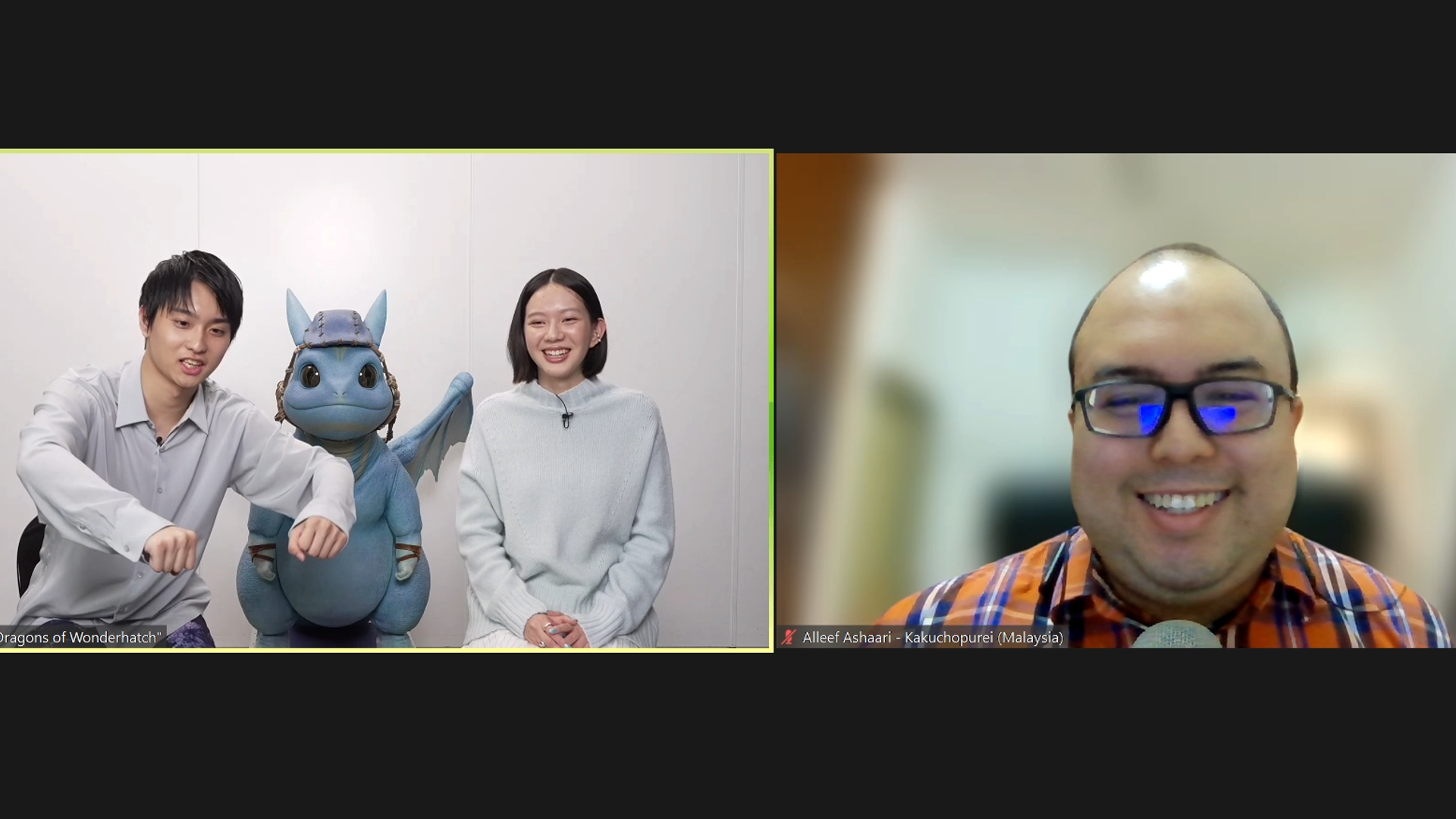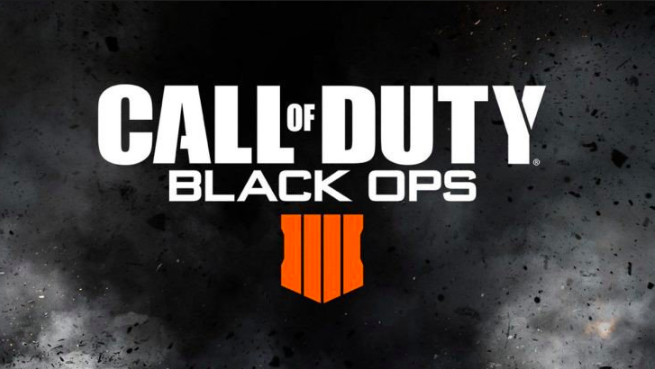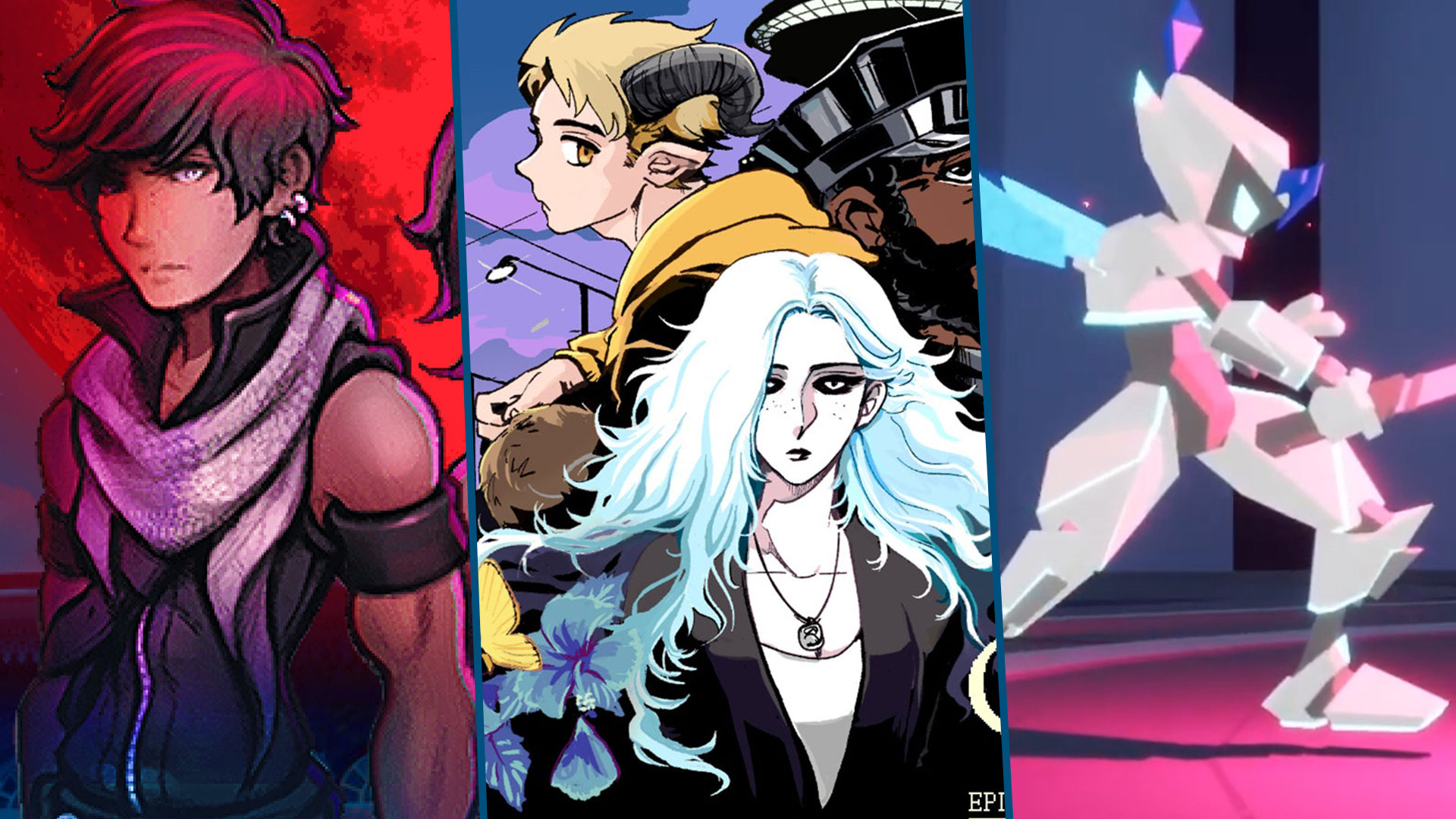

Write what you are looking for and press enter to begin your search!
Live News


From Game Changer To Growth Spurt: Ammobox Studios’ CEO Unveils What’s Next
 ">
">
By Lewis LarcombeVerified|September 18, 2024|2 Comments
NOTE: This interview has been paraphrased for clarity.
Jeremy Choo, CEO of Ammobox Studios, has steered the company from its humble beginnings in 2008 to a thriving game development powerhouse. With a remarkable growth trajectory—from a tight-knit team of 12 to a robust 60—the studio is now a key player in crafting innovative game IPs and collaborating with external partners.
As they gear up for Eximius: Seize the Frontline’s fourth season and tease their new venture, Project Guardian, I visited their offices in Subang Jaya, Selangor, to sit down with Jeremy. In our conversation, he shared insights into the studio’s journey, the challenges and opportunities of transitioning to Unreal Engine 5, and the evolving landscape of the global gaming industry. He also discussed the pivotal role of the Malaysia Digital Economy Corporation (MDEC) in their growth and their aspirations to enhance Southeast Asia’s stature in the game development arena.

Since 2019, we’ve expanded significantly. In 2019, we were a team of 12, but now we’ve grown to around 60.
This increase has not only impacted the amount of work we can handle but also the talent we’ve been able to bring in. After launching Eximius in 2021 — specifically the Goal 1.0 release — we were approached to collaborate on several projects, prompting us to scale up further to support external partners. While we hadn’t been very involved in external development before, we’re now actively working in that area.

When looking at the past six years, we refer to the Early Access launch, which was quite different from the final release in 2021, which we consider as the 1.0 version. From Early Access in 2018 to the official launch in 2021.
The game saw rapid changes. We developed it closely with the community, and there were significant pivots in game design and content, especially in the first three years.
After the official launch, however, updates slowed to about once a year due to resource constraints and our scaling efforts. Admittedly, content updates took a bit of a back seat. Our community has been asking for more frequent content, so we’re committed to delivering that in Season 4, which will feature a lot more content. While the pace of changes has slowed, we’re now focused on adding more content with each season.

Typically, a game that’s already launched wouldn’t be ported to Unreal Engine 5, so we took a bit of a risk by doing so to incorporate some of the newer features. The challenges we faced were mainly around cross-platform play. When we transitioned to Unreal Engine 5, it coincided with the implementation of cross-platform compatibility, allowing Steam players to play with those on the App-In-Game Store. This led to a major challenge—revamping the backend to support this.
Another hurdle was Unreal Engine 5’s lighting changes. While there’s a lot of new technology available, we couldn’t port all our assets to it, so we had to find intermediate solutions for much of the content.
Moving to Unreal Engine 5 was more about laying the groundwork for future upgrades.
We haven’t fully utilised all its features yet—for example, we’ve started using lumens but haven’t implemented nanites. The migration opens up plenty of upgrade opportunities, though we haven’t fully explored them yet.

One of the biggest challenges with any multiplayer game is maintaining a solid player base. A game needs strong marketing from the start to establish that base. If the player base shrinks, you end up with a skill gap between veteran players and newer, less experienced ones. This can make it difficult for new players to enjoy the game when all they’re up against are highly skilled veterans.
Fortunately, we have a community that’s been really supportive in helping new players get into the game. However, our initial launch didn’t attract a large player base, so we’ve been growing it gradually, season by season. I wouldn’t say we’ve secured a foothold in the competitive shooter market yet. Our goal was more about establishing ourselves in competitive gaming as a whole. Eximius is a strategic shooter, which sets it apart from hardcore shooters—it’s not just about aiming. We wanted to offer something fresh with a strategic twist, and in that sense, we’ve built a community familiar with the game and keen on competitive play. But as far as the competitive shooter market goes, we’re still working toward gaining a foothold.

We’ll be introducing two divisions that were initially planned for Season 3 but got delayed.
It’s part of our effort to clear the content backlog. There will likely be new soundtracks, some content updates, and tweaks to co-op mode, with more content being added there. The rest will involve regular updates, gameplay adjustments to keep things fresh, balance fixes, and new cosmetics.
Aside from that, we’re working on a project with the working title “Project Guardian,” a spin-off from the Eximius universe. We’ve discussed it a bit with the community, though most details are still under wraps. What I can share is that it’s a PvE co-op shooter, moving away from the competitive setting. It will be a third-person shooter with a strategic focus but without the RTS elements, offering more collaborative gameplay.

At its core, we’re designing it to be a looter-shooter.
There are still some details we’re finalising, but it’s targeted towards players who enjoy games like Destiny, The Division, and Outriders—those who appreciate shooters with abilities. We’re also working on a unique approach to raid mechanics, which should add an interesting layer to the gameplay.

The main lessons we learned were more about how to run the studio and be cautious when collaborating with partners, rather than specific to any single project. There’s a common misconception that we were involved in a legal battle, but that wasn’t the case—we couldn’t afford one. What happened was more like having something stolen and needing to reclaim it. We never lost the legal rights to Eximius; the publisher had a license to publish but didn’t own it.
We eventually got the game back from Steam and resumed development. What really impacted us was not the loss of revenue but the loss of momentum.
Momentum is critical when launching a game, and the lack of marketing support before and after the launch hurt us.
The publisher essentially ran off with the proceeds, which significantly stalled our progress.

Eximius is a strong candidate for a free-to-play model, and we’re open to discussing it with a suitable partner.
The key challenge is that transitioning to free-to-play, especially for an existing game, requires a major rebranding or relaunch effort. A strong publisher is crucial in this process to build the critical mass needed for multiplayer matchmaking.
We’re very open to exploring this, but it’s about finding the right partner with extensive experience in the free-to-play space. As a studio, we want to focus on development—we’re not a publisher, and while we did self-publish Eximius, it wasn’t an ideal situation. To make free-to-play work, we’d need a publisher with solid expertise in both multiplayer and free-to-play models.

This is a common topic among game developers. There was a lot of over-projection in recent years, particularly during the pandemic, when there was a surge in digital media consumption, including video games and streaming. Many anticipated continued rapid growth, but now we’re seeing a correction as reality sets in. This, combined with challenging economic conditions, has led to project cancellations and increased competition for contracts.
For us, it’s a reminder that while growth is important, it’s crucial not to scale too aggressively.
Building a studio sustainably—both financially and as a team—is key. We need to grow carefully and remain cautious to ensure long-term stability and success.

MDEC has been instrumental in developing Malaysia’s digital ecosystem, and we’re fortunate to have their support.
They’ve helped attract foreign interest, organised events, and nurtured the gaming industry here. This support has been crucial for us, especially in terms of finding talent, forming partnerships, and fostering industry growth. MDEC has significantly contributed to making Malaysia a hub for game development in Southeast Asia.
Additionally, MDEC has been a valuable partner for us. They funded Eximius through one of their grants, and we’re grateful for their support, which was essential for completing the project. Overall, MDEC’s involvement has been vital to the growth of our studio and the broader industry.

Ammobox has been evolving significantly since its founding in 2008. Over the past five years, we’ve experienced substantial growth, expanding from a team of 12 to 60. We aim to grow slowly and sustainably, having pivoted several times along the way.
One major development is our expansion into work-for-hire projects and building full games with partners. Our goal is to become a studio capable of handling multiple projects simultaneously, allowing our team to learn from each other and improve collectively. This approach contrasts with our previous focus on just Eximius.
Looking ahead, we want to scale not only in terms of the number of projects but also in talent and quality.
Our ambition is to establish Ammobox as a leading IP development studio in Southeast Asia, shifting the region’s reputation from being largely outsourced to one known for creating high-quality IPs.

As Ammobox Studios strides confidently into its next chapter, the evolution from a small team to a formidable player in the gaming world is nothing short of epic. With the eagerly anticipated Season 4 of Eximius on the horizon and the mysterious Project Guardian in the works, Jeremy Choo and his team are not just navigating the treacherous waters of game development—they’re charting a bold course for the future.
Their journey reflects a deep commitment to innovation, resilience, and a vision to elevate Southeast Asia’s game development scene from the background to the spotlight. As they continue to balance ambition with sustainability, Ammobox is proving that even in a world of rapid change, a steadfast focus on quality and growth can lead to truly game-changing results.

By Alleef AshaariVerified|December 20, 2023
Dragons Of Wonderhatch is a new Japanese Original series, which will premiere on 20 December 2023 on Disney+ Hotstar. Check out our spoiler-free revie...

By KakuchopureiVerified|July 17, 2018
The Call of Duty: Black Ops IIII open beta drops in August and here are some of the important info you'd wanna know. It's a clusterfuck of info so we'...

By KakuchopureiVerified|December 27, 2023
December is the month when we recollect our thoughts and present them yet again in a retrospective fashion. Like in the form of a "Best Of Year" list ...

By Jonathan Toyad|May 6, 2025

By Jonathan Toyad|April 30, 2025

By Jonathan Toyad|April 9, 2025

By Jonathan Toyad|March 28, 2025

By Kakuchopurei|February 17, 2025

By Ali'sha Harris|February 16, 2025

By Jonathan Toyad|May 7, 2025

By Jonathan Toyad|May 6, 2025

By Jonathan Toyad|May 6, 2025

By Jonathan Toyad|April 30, 2025

By Jonathan Toyad|April 9, 2025

By Jonathan Toyad|March 28, 2025

By Kakuchopurei|February 17, 2025

By Jonathan Toyad|May 6, 2025

By Jonathan Toyad|April 30, 2025

By Jonathan Toyad|April 9, 2025

By Jonathan Toyad|March 28, 2025

By Kakuchopurei|February 17, 2025

By Ali'sha Harris|February 16, 2025
Copyright @ Kakuchopurei 2025
MDEC And Matrade To Lead Malaysian Gaming Companies In Tokyo Game Show 2024 | Kakuchopurei
September 23, 2024 at 2:37 pm
[…] Ammobox Studios: the makers of real-time strategy and shooter hybrid title Eximius. […]
MDEC And Matrade Launches Malaysia Pavilion In Tokyo Game Show 2024 | Kakuchopurei
September 26, 2024 at 8:02 pm
[…] Ammobox Studios: the makers of real-time strategy and shooter hybrid title Eximius. […]